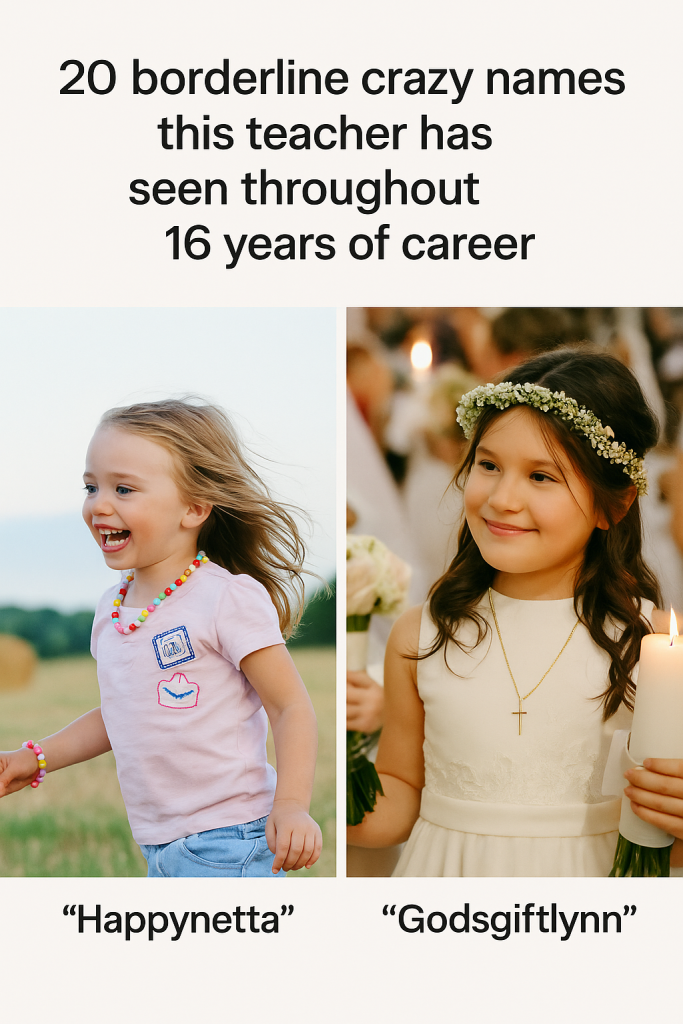In a world where baby names are becoming increasingly imaginative and unique, one veteran teacher has captured widespread attention by sharing a list of the most borderline crazy names they have encountered over a remarkable 16-year career. From spellbinding inventiveness to names that sound straight out of a fantasy novel, these monikers highlight the evolving creativity—and occasional bewilderment—in modern naming trends.
The list has gained traction on social media, sparking both amusement and debate among parents, educators, and baby-naming enthusiasts. Among the roster are names such as “Godsgiftlynn” and “Giftlynn,” which stand out for their distinctive blend of spirituality and poetic flair. Such names, while unique, bring about questions on pronunciation, spelling, and the real-life challenges children might face in school settings.
The teacher, whose identity remains private, described how seeing such unorthodox names became a mix of curiosity and a learning experience throughout the years. “You get kids coming into the classroom, and their names reflect such a range—from traditional and classic, to ones that make you pause and double-check,” they said in a recent interview. The educator emphasized that while creativity should be celebrated, consideration for the child’s future interactions is important.
Names like “عد 一代か”—a combination of Arabic and East Asian characters—also caught attention due to their complexity and cultural fusion. These names represent a new generation’s push for individuality and multicultural identity, but can also pose challenges in communication and record-keeping within schools.
Experts in naming trends suggest that the rise of social media, global cultural influences, and the desire for uniqueness are driving parents to choose increasingly unconventional names. The teacher’s experiences illustrate a microcosm of this worldwide trend.
Beyond mere curiosity, educators warn that certain complicated or overly unusual names may impact children socially. Pronunciation difficulties can lead to embarrassment or exclusion, and even teachers must learn to pronounce names correctly to foster an inclusive environment.
Despite these challenges, the teacher expressed heartfelt appreciation for the diversity names bring to the classroom, stating, “Each name carries a story, a background, and a parent’s hopes and dreams. It’s part of what makes teaching such a rich and rewarding profession.”
With the conversation around baby names ever-evolving, this glimpse into 16 years of unique student nomenclature offers valuable insight into how names are not only personal identifiers but also reflections of cultural, social, and individual identity trends shaping the 21st century.
As naming conventions continue to push boundaries, the stories behind names like Godsgiftlynn remind us that while creativity in naming is celebrated, balance and foresight remain key to giving children names that they proudly carry throughout their lives.



